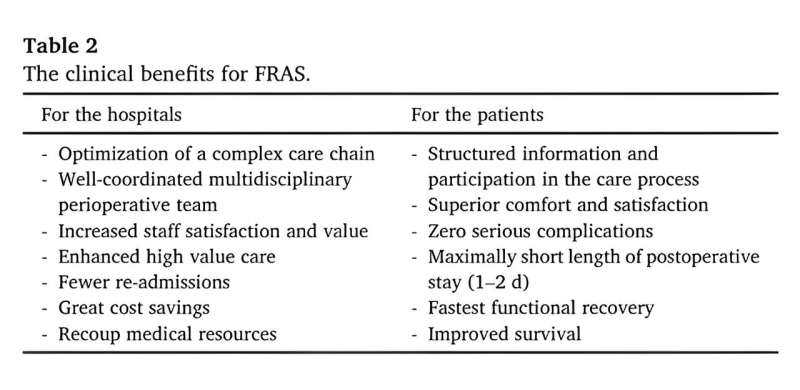by KeAi Communications Co., Ltd.
In the 1990s, Dr. Henrik Kehlet introduced the concept of enhanced recovery after surgery (ERAS), pioneering multimodal surgical care. Initially applied to patients undergoing colonic surgery, ERAS has also been dedicated to developing multimodal perioperative care to improve patients’ recovery after major surgery through research, education, audit and implementation of evidence-based practice, aiming to close the “knowing-doing” gap.
Representing a paradigm shift in perioperative care, ERAS challenges traditional practices, replacing them with evidence-based best practices in perioperative care.
Currently, the debate has shifted away from whether colorectal surgery following ERAS principles or traditional care is superior, towards enhancing the approach and streamlining its implementation. One such improvement involves transitioning patients from a surgical procedure requiring a 3–4 day hospital stay to a 1–2 day, or even same-day outpatient visit.
To this end, a team of researchers from China proposed a new concept called fastest recovery after surgery (FRAS) and implemented it in clinical practice to expedite recovery in patients undergoing elective major gastrointestinal surgery, building upon existing ERAS protocols.
“FRAS is a series of strengthened multimodal perioperative care pathways to optimize physiologic function, minimize surgical stress response, improve response to stress, and facilitate fastest postoperative recovery with improving comfort and satisfaction,” explains Xiaohuang Tu, co-corresponding author of the study.
The researchers conducted pilot studies comparing short-term outcomes between FRAS and ERAS, and found that FRAS demonstrated “zero” complications, significantly reduced hospital stay duration, substantial cost savings and notably superior perioperative comfort and satisfaction.

The team reported their study in the journal Gastroenterology & Endoscopy.
“Considering the evidence underpinning the recommendations is continuously evolving, clinical guidelines need to be challenged and updated on a regular basis. More clinical evidence from high quality of randomized controlled trials or real-world medical data with large sample size are needed,” notes Tu.
More information:
Huanghui Wu et al, Road of recovery in gastrointestinal surgery: From ERAS to FRAS, Gastroenterology & Endoscopy (2024). DOI: 10.1016/j.gande.2024.03.007
Provided by
KeAi Communications Co., Ltd.
Citation:
Road of recovery in gastrointestinal surgery: From ERAS to FRAS (2024, May 8)
retrieved 8 May 2024
from https://medicalxpress.com/news/2024-05-road-recovery-gastrointestinal-surgery-eras.html
This document is subject to copyright. Apart from any fair dealing for the purpose of private study or research, no
part may be reproduced without the written permission. The content is provided for information purposes only.

